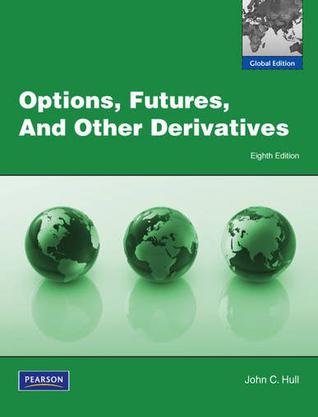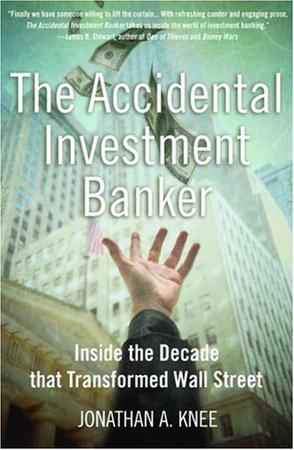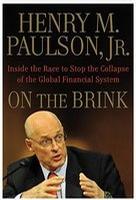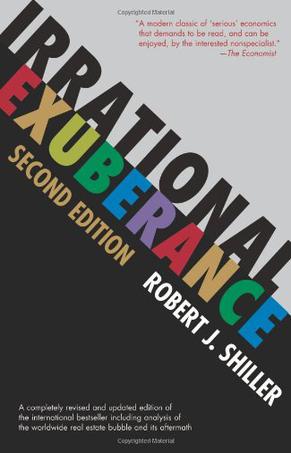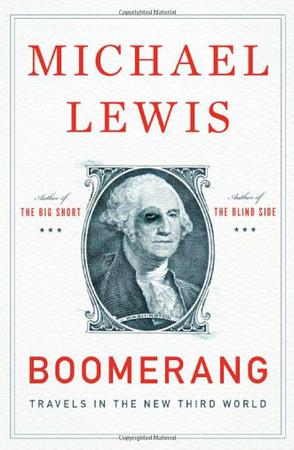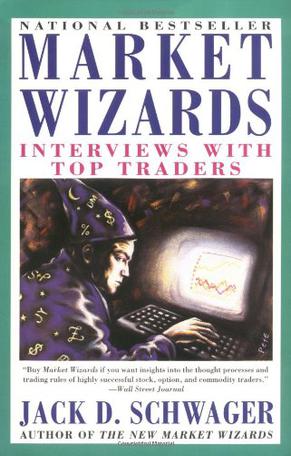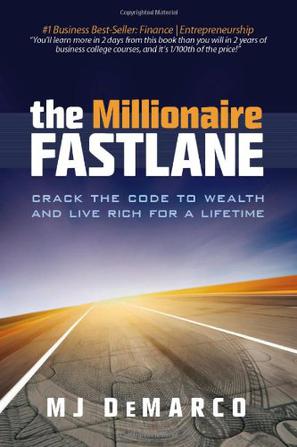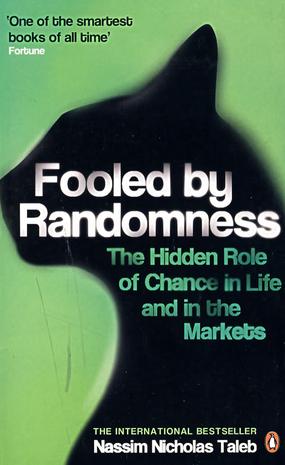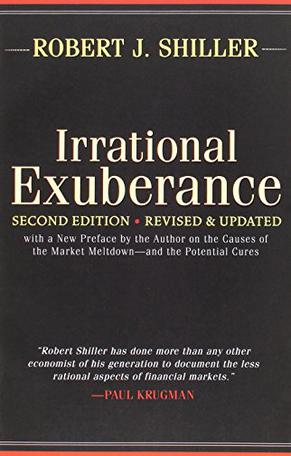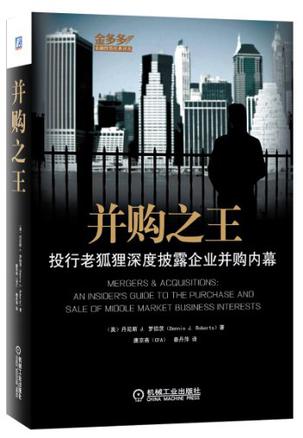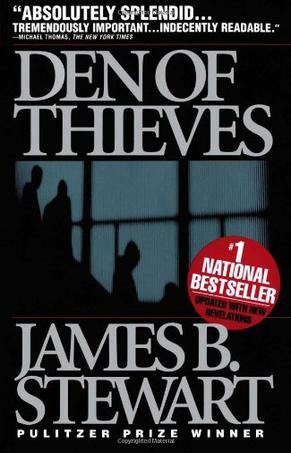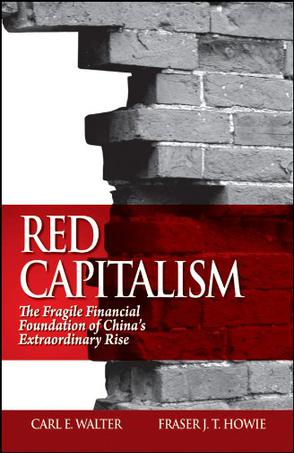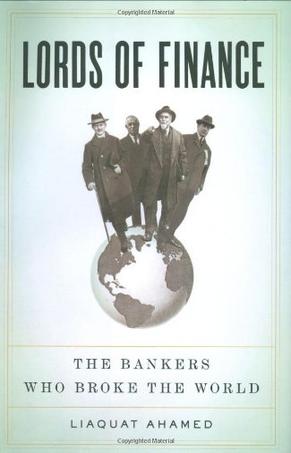欢迎来到相识电子书!
标签:finance
-
Options Futures and Other Derivatives
For undergraduate and graduate courses in derivatives, options and futures, financial engineering, financial mathematics, and risk management. Bridge the gap between theory and practice. This title is a Pearson Global Edition. The Editorial team at Pearson has worked closely with educators around the world to include content which is especially relevant to students outside the United States. Designed to bridge the gap between theory and practice, this introductory text on the futures and options markets is ideal for those with a limited background in mathematics. The eighth edition has been updated and improved - featuring a new chapter on securitization and the credit crisis, and increased discussion on the way commodity prices are modeled and commodity derivatives valued. MyLab或是Mastering系列是在线作业系统。Access Code Card是在线作业系统的访问码,是老师和学生课堂之外网络互动及交流的平台,个人是无法使用这个平台的。请读者注意您购买的这个ISBN是不带Access Code Card的。 -
The Accidental Investment Banker
Jonathan A. Knee had a ringside seat during the go-go, boom-and-bust decade and into the 21st century, at the two most prestigious investment banks on Wall Street--Goldman Sachs and Morgan Stanley. In this candid and irreverent insider's account of an industry in free fall, Knee captures an exhilarating era of fabulous deal-making in a free-wheeling Internet economy--and the catastrophe that followed when the bubble burst. Populated with power players, back stabbers, celebrity bankers, and godzillionaires, here is a vivid account of the dramatic upheaval that took place in investment banking. Indeed, Knee entered an industry that was typified by the motto "first-class business in a first-class way" and saw it transformed in a decade to a free-for-all typified by the acronym IBG, YBG ("I'll be gone, you'll be gone"). Increasingly mercenary bankers signed off on weak deals, knowing they would leave them in the rear-view mirror. Once, investment bankers prospered largely on their success in serving the client, preserving the firm, and protecting the public interest. Now, in the "financial supermarket" era, bankers felt not only that each day might be their last, but that their worth was tied exclusively to how much revenue they generated for the firm on that day--regardless of the source. Today, most young executives feel no loyalty to their firms, and among their clients, Knee finds an unprecedented but understandable level of cynicism and distrust of investment banks. Brimming with insight into what investment bankers actually do, and told with biting humor and unflinching honesty, The Accidental Investment Banker offers a fascinating glimpse behind the scenes of the most powerful companies on Wall Street. -
How I Became a Quant
Praise for How I Became a Quant "Led by two top-notch quants, Richard R. Lindsey and Barry Schachter, How I Became a Quant details the quirky world of quantitative analysis through stories told by some of today's most successful quants. For anyone who might have thought otherwise, there are engaging personalities behind all that number crunching!" --Ira Kawaller, Kawaller & Co. and the Kawaller Fund "A fun and fascinating read. This book tells the story of how academics, physicists, mathematicians, and other scientists became professional investors managing billions." --David A. Krell, President and CEO, International Securities Exchange "How I Became a Quant should be must reading for all students with a quantitative aptitude. It provides fascinating examples of the dynamic career opportunities potentially open to anyone with the skills and passion for quantitative analysis." --Roy D. Henriksson, Chief Investment Officer, Advanced Portfolio Management "Quants"--those who design and implement mathematical models for the pricing of derivatives, assessment of risk, or prediction of market movements--are the backbone of today's investment industry. As the greater volatility of current financial markets has driven investors to seek shelter from increasing uncertainty, the quant revolution has given people the opportunity to avoid unwanted financial risk by literally trading it away, or more specifically, paying someone else to take on the unwanted risk. How I Became a Quant reveals the faces behind the quant revolution, offering you?the?chance to learn firsthand what it's like to be a?quant today. In this fascinating collection of Wall Street war stories, more than two dozen quants detail their roots, roles, and contributions, explaining what they do and how they do it, as well as outlining the sometimes unexpected paths they have followed from the halls of academia to the front lines of an investment revolution. -
On the Brink
When Hank Paulson, the former CEO of Goldman Sachs, was appointed in 2006 to become the nation's next Secretary of the Treasury, he knew that his move from Wall Street to Washington would be daunting and challenging. But Paulson had no idea that a year later, he would find himself at the very epicenter of the world's most cataclysmic financial crisis since the Great Depression. Major institutions including Bear Stearns, Fannie Mae, Freddie Mac, Lehman Brothers, AIG, Merrill Lynch, and Citigroup, among others-all steeped in rich, longstanding tradition-literally teetered at the edge of collapse. Panic ensnared international markets. Worst of all, the credit crisis spread to all parts of the U.S. economy and grew more ominous with each passing day, destroying jobs across America and undermining the financial security millions of families had spent their lifetimes building. This was truly a once-in-a-lifetime economic nightmare. Events no one had thought possible were happening in quick succession, and people all over the globe were terrified that the continuing downward spiral would bring unprecedented chaos. All eyes turned to the United States Treasury Secretary to avert the disaster. This, then, is Hank Paulson's first-person account. From the man who was in the very middle of this perfect economic storm, ON THE BRINK is Paulson's fast-paced retelling of the key decisions that had to be made with lightning speed. Paulson puts the reader in the room for all the intense moments as he addressed urgent market conditions, weighed critical decisions, and debated policy and economic considerations with of all the notable players-including the CEOs of top Wall Street firms as well as Ben Bernanke, Timothy Geithner, Sheila Bair, Nancy Pelosi, Barney Frank, presidential candidates Barack Obama and John McCain, and then-President George W. Bush. More than an account about numbers and credit risks gone bad, ON THE BRINK is an extraordinary story about people and politics-all brought together during the world's impending financial Armageddon. -
Living High and Letting Die
By contributing a few hundred dollars to a charity like UNICEF, a prosperous person can ensure that fewer poor children die, and that more will live reasonably long, worthwhile lives. Even when knowing this, however, most people send nothing, and almost all of the rest send little. What is the moral status of this behavior? To such common cases of letting die, our untutored response is that, while it is not very good, neither is the conduct wrong. What is the source of this lenient assessment? In this contentious new book, one of our leading philosophers argues that our intuitions about ethical cases are generated not by basic moral values, but by certain distracting psychological dispositions that all too often prevent us from reacting in accord with our commitments. Through a detailed look at how these tendencies operate, Unger shows that, on the good morality that we already accept, the fatally unhelpful behavior is monstrously wrong. By uncovering the eminently sensible ethics that we've already embraced fully, and by confronting us with empirical facts and with easily followed instructions for lessening serious suffering appropriately and effectively, Unger's book points the way to a compassionate new moral philosophy. -
Irrational Exuberance
This first edition of this book was a broad study, drawing on a wide range of published research and historical evidence, of the enormous stock market boom that started around 1982 and picked up incredible speed after 1995. Although it took as its specific starting point this ongoing boom, it placed it in the context of stock market booms generally, and it also made concrete suggestions regarding policy changes that should be initiated in response to this and other such booms. The book argued that the boom represents a speculative bubble, not grounded in sensible economic fundamentals. Part one of the book considered structural factors behind the boom. A list of twelve precipitating factors that appear to be its ultimate causes was given. Amplification mechanisms, naturally-occurring Ponzi processes, that enlarge the effects of these precipitating factors, were described. Part Two discussed cultural factors, the effects of the news media, and of "new era" economic thinking. Part Three discussed psychological factors, psychological anchors for the market and herd behavior. Part Four discussed attempts to rationalize exuberance: efficient markets theory and theories that investors are learning. Part Five presented policy options and actions that should be taken. The second edition, 2005, added an analysis of the real estate bubble as similar to the stock market bubble that preceded it, and warned that "Significant further rises in these markets could lead, eventually, to even more significant declines. The bad outcome could be that eventual declines would result in a substantial increase in the rate of personal bankruptcies, which could lead to a secondary string of bankruptcies of financial institutions as well. Another long-run consequence could be a decline in consumer and business confidence, and another, possibly worldwide, recession." Thus, the second edition of this book was among the first to warn of the global financial crisis that began with the subprime mortgage debacle in 2007 点击链接进入中文版: 非理性繁荣(第2版) -
Boomerang
The tsunami of cheap credit that rolled across the planet between 2002 and 2008 was more than a simple financial phenomenon: it was temptation, offering entire societies the chance to reveal aspects of their characters they could not normally afford to indulge. Icelanders wanted to stop fishing and become investment bankers. The Greeks wanted to turn their country into a pinata stuffed with cash and allow as many citizens as possible to take a whack at it. The Germans wanted to be even more German; the Irish wanted to stop being Irish. Michael Lewis's investigation of bubbles beyond our shores is so brilliantly, sadly hilarious that it leads the American reader to a comfortable complacency: oh, those foolish foreigners. But when he turns a merciless eye on California and Washington, DC, we see that the narrative is a trap baited with humor, and we understand the reckoning that awaits the greatest and greediest of debtor nations. -
Beyond Greed and Fear
Even the best Wall Street investors make mistakes. No matter how savvy or experienced, all financial practitioners eventually let bias, overconfidence, and emotion cloud their judgement and misguide their actions. Yet most financial decision-making models fail to factor in these fundamentals of human nature. In Beyond Greed and Fear, the most authoritative guide to what really influences the decision-making process, Hersh Shefrin uses the latest psychological research to help us understand the human behavior that guides stock selection, financial services, and corporate financial strategy. Shefrin argues that financial practitioners must acknowledge and understand behavioral finance--the application of psychology to financial behavior--in order to avoid many of the investment pitfalls caused by human error. Through colorful, often humorous real-world examples, Shefrin points out the common but costly mistakes that money managers, security analysts, financial planners, investment bankers, and corporate leaders make, so that readers gain valuable insights into their own financial decisions and those of their employees, asset managers, and advisors. According to Shefrin, the financial community ignores the psychology of investing at its own peril. Beyond Greed and Fear illuminates behavioral finance for today's investor. It will help practitioners to recognize--and avoid--bias and errors in their decisions, and to modify and improve their overall investment strategies. -
Fooled by Randomness
Now in a striking new hardcover edition, Fooled by Randomness is the word-of-mouth sensation that will change the way you think about business and the world. Nassim Nicholas Taleb–veteran trader, renowned risk expert, polymathic scholar, erudite raconteur, and New York Times bestselling author of The Black Swan–has written a modern classic that turns on its head what we believe about luck and skill. This book is about luck–or more precisely, about how we perceive and deal with luck in life and business. Set against the backdrop of the most conspicuous forum in which luck is mistaken for skill–the world of trading– Fooled by Randomness provides captivating insight into one of the least understood factors in all our lives. Writing in an entertaining narrative style, the author tackles major intellectual issues related to the underestimation of the influence of happenstance on our lives. The book is populated with an array of characters, some of whom have grasped, in their own way, the significance of chance: the baseball legend Yogi Berra; the philosopher of knowledge Karl Popper; the ancient world’s wisest man, Solon; the modern financier George Soros; and the Greek voyager Odysseus. We also meet the fictional Nero, who seems to understand the role of randomness in his professional life but falls victim to his own superstitious foolishness. However, the most recognizable character of all remains unnamed–the lucky fool who happens to be in the right place at the right time–he embodies the “survival of the least fit.” Such individuals attract devoted followers who believe in their guru’s insights and methods. But no one can replicate what is obtained by chance. Are we capable of distinguishing the fortunate charlatan from the genuine visionary? Must we always try to uncover nonexistent messages in random events? It may be impossible to guard ourselves against the vagaries of the goddess Fortuna, but after reading Fooled by Randomness we can be a little better prepared. PRAISE FOR FOOLED BY RANDOMNESS : Named by Fortune One of the Smartest Books of All Time A Financial Times Best Business Book of the Year “[ Fooled by Randomness ] is to conventional Wall Street wisdom approximately what Martin Luther’s ninety-five theses were to the Catholic Church.” –Malcolm Gladwell, author of Blink “The book that rolled down Wall Street like a hand grenade.” –Maggie Mahar, author of Bull! A History of the Boom, 1982—1999 “Fascinating . . . Taleb will grab you.” –Peter L. Bernstein, author of Capital Ideas Evolving “Recalls the best of scientist/essayists like Richard Dawkins . . . and Stephen Jay Gould.” –Michael Schrage, author of Serious Play: How the World’s Best Companies Simulate to Innovate “We need a book like this. . . . Fun to read, refreshingly independent-minded.” –Robert J. Shiller, author of Irrational Exuberance “Powerful . . . loaded with crackling little insights [and] extreme brilliance.” –National Review “If asked to name the five best books written about markets, Fooled by Randomness would be on my list.” –Jack D. Schwager, author of Market Wizards: Interviews with Top Traders “Excellent and thought-provoking . . . an entertaining book.” –Financial Times -
Market Wizards
A bestselling classic (more than 200,000 copies sold in hardcover and paperback) that delves into the minds of some of the world's most successful traders. -
The Black Swan
A black swan is a highly improbable event with three principal characteristics: It is unpredictable; it carries a massive impact; and, after the fact, we concoct an explanation that makes it appear less random, and more predictable, than it was. The astonishing success of Google was a black swan; so was 9/11. For Nassim Nicholas Taleb, black swans underlie almost everything about our world, from the rise of religions to events in our own personal lives. Why do we not acknowledge the phenomenon of black swans until after they occur? Part of the answer, according to Taleb, is that humans are hardwired to learn specifics when they should be focused on generalities. We concentrate on things we already know and time and time again fail to take into consideration what we don’t know. We are, therefore, unable to truly estimate opportunities, too vulnerable to the impulse to simplify, narrate, and categorize, and not open enough to rewarding those who can imagine the “impossible.” For years, Taleb has studied how we fool ourselves into thinking we know more than we actually do. We restrict our thinking to the irrelevant and inconsequential, while large events continue to surprise us and shape our world. Now, in this revelatory book, Taleb explains everything we know about what we don’t know. He offers surprisingly simple tricks for dealing with black swans and benefiting from them. Elegant, startling, and universal in its applications The Black Swan will change the way you look at the world. Taleb is a vastly entertaining writer, with wit, irreverence, and unusual stories to tell. He has a polymathic command of subjects ranging from cognitive science to business to probability theory. The Black Swan is a landmark book–itself a black swan. -
Fooled by Randomness
《财富》评选的75本商务人士必读书之一。股市的大起大落只发生在须臾之间,借鉴塔勒布的操作手法(这也是不少操盘手正在做的),您将能避免风险,并在黑天鹅出现时大赚一笔。说股票交易者应该人手一册本书绝对不过分。 人的本性经常低估随机现象,我们很需要这样的书。妙趣横生、清新隽永且独具一格,令人玩味无穷。——罗伯特·希勒(畅销书《非理性繁荣》作者) 本书常识性知识俯拾即是。如果你是交易员、科学家,或者哈佛律师,本书必读。——保罗·威尔莫特(《衍生性金融商品》作者) 简单一句话:这本书让人看得入迷。埋首其中,你对生命(以及你的钱财)的了解将大为增进,这可不是随机性的结果。——伯恩斯坦(彼得·伯恩斯坦公司总裁) 当还是股市中的一位菜鸟级别的交易员时,作者塔勒布曾成功地在一次股灾中得以幸免,他潜心半年研究这场风暴,认为他的逃脱不是有比其他人高明之处,完全是运气好——运气在金融市场中起着重要的作用,但是人们却总是过低地估计了随机作用,忍不住想对事物做出自己的解释,这就形成了种种迷信。由此他写作了这样一部关于运气——随机性的书。 塔勒布指出:在基因上,我们仍和未开化的土著人很接近。我们的信念的形成,充满着迷信──即使现今也不例外(或许必须说,尤以今天为甚)。某一天,原始部落的某个人抓了鼻子之后不久,雨开始下了,于是他煞费苦心发展出一套抓鼻子祈雨的方法。同样的,我们会把经济的繁荣归功于联邦储备委员会降低利率;或者一家公司经营成功,竟和新总裁“走马上任”有关。类似风马牛不相及的事件屡屡被我们扯上联系,并导致我们在人生的重要抉择关头步步踏错,先机尽失。 生活中随机性无处不在,即使是专业的数学家,并精于概率的计算,也往往会被随机性所捉弄,塔勒布最后建言:我们虽然无法避免随机性,但我们可以学着接受它。塔勒布的理念已经自成一派,世界上相当多的股票交易员都承认受到他理念的影响——从稀有事件中获取收益。这绝对是每一位证券交易者都应该珍藏的一本书! Everyone wants to succeed in life. But what causes some of us to be more successful than others? Is it really down to skill and strategy – or something altogether more unpredictable? This book is the word-of-mouth sensation that will change the way you think about business and the world. It is all about luck: more precisely, how we perceive luck in our personal and professional experiences. Nowhere is this more obvious than in the markets; we hear an entrepreneur has ‘vision; or a trader is talented;, but all too often their performance is down to chance rather than skill. It is only because we fail to understand probability that we continue to believe events are non-random, finding reasons where none exist. This irreverent bestseller has shattered the illusions of people around the world by teaching them how to recognize randomness. Now it can do the same for you. -
Irrational Exuberance
《非理性繁荣》书名取自美国联邦准备理事会理事主席葛林史班 1996 年底在华府希尔顿饭店演讲中,谈到当时美国金融资产价格泡沫时所引用的一句名言。从那时起,许多学者、专家都注意到美国股市因投机风气过盛而引发的投资泡沫现象。 Book Description In this timely and prescient update of his celebrated 2000 bestseller, Robert Shiller returns to the topic that gained him international fame: market volatility. Having predicted the stock market collapse that began just one month after the first edition was published, he now expands the book to cover other markets that have become volatile, particularly the recently red-hot housing market. He includes a full chapter on domestic and international housing prices in historical perspective. Shiller amasses impressive evidence to support his argument that the recent housing market boom bears many similarities to the stock market bubble of the late 1990s, and may eventually be followed by declining home prices for years to come. After stocks plummeted when the bubble burst in 2000, investors moved their money into housing. This precipitated the inflated real estate prices not only in America but around the world, Shiller maintains. Hence, irrational exuberance did not disappear—it merely reappeared in other settings. Building on the original edition, Shiller draws out the psychological origins of volatility in financial markets, this time folding real estate into his analysis. He broadens the evidence that investing in capital markets of all kinds in the modern free-market economy is inherently unstable—subject to the profoundly human influences captured in Alan Greenspan’s now-famous phrase, “irrational exuberance.” As was true of its predecessor, the second edition of Irrational Exuberance is destined to be widely read, discussed, and debated. Amazon.com CNBC, day trading, the Motley Fool, Silicon Investor--not since the 1920s has there been such an intense fascination with the U.S. stock market. For an increasing number of Americans, logging on to Yahoo! Finance is a habit more precious than that morning cup of joe (as thousands of SBUX and YHOO shareholders know too well). Yet while the market continues to go higher, many of us can't get Alan Greenspan's famous line out of our heads. In Irrational Exuberance, Yale economics professor Robert J. Shiller examines this public fascination with stocks and sees a combination of factors that have driven stocks higher, including the rise of the Internet, 401(k) plans, increased coverage by the popular media of financial news, overly optimistic cheerleading by analysts and other pundits, the decline of inflation, and the rise of the mutual fund industry. He writes: "Perceived long-term risk is down.... Emotions and heightened attention to the market create a desire to get into the game. Such is irrational exuberance today in the United States." By history's yardstick, Shiller believes this market is grossly overvalued, and the factors that have conspired to create and amplify this event--the baby-boom effect, the public infatuation with the Internet, and media interest--will most certainly abate. He fears that too many individuals and institutions have come to view stocks as their only investment vehicle, and that investors should consider looking beyond stocks as a way to diversify and hedge against the inevitable downturn. This is a serious and well-researched book that should read like a Stephen King novel to anyone who has staked his or her future on the market's continued success. --Harry C. Edwards From The New Yorker During the past decade, he has emerged as a leader in the new field of "behavioral finance" which seeks to apply lessons learned from other academic disciplines, particularly psychology to economics. Irrational Exuberance is not just a prophecy of doom. Encompassing history, sociology, and biology, as well as psychology and economics, it is a serious attempt to explain how speculative bubbles come about and how they sustain themselves. John Cassidy From Library Journal Taking his book's title and thesis from Alan Greenspan's 1996 description of investors, Shiller (economics, Yale Univ.) studies the current booming U.S. stock market in historical terms. His research into past U.S. and international markets indicates that during every speculative bubble there was always widespread consensus that high valuations were justified by each market's special circumstances. Every large market correction seemed to result from popular consensus rather than specific events or news. Shiller says that past bull and bear markets, though often based initially on sound fundamental reasoning, fed upon themselves to go beyond what the facts justified. He challenges the efficient market theory, demonstrating that markets cannot be explained historically by the movement of company earnings or dividends. He concludes that the current U.S. stock market is a speculative bubble awaiting correction. While the book certainly belongs in all academic business collections, public libraries should also purchase it as a counterweight to the plethora of get-rich-quick investment guides. -Lawrence R. Maxted, Gannon Univ., Erie, PA From The New York Times Book Review No one has explored the strange behavior of the American investor in the 1990's with more authority, or better timing, than Robert J. Shiller. Louis Uchitelle About Author Robert J. Shiller is the Stanley B. Resor Professor of Economics at Yale University. He is the recipient of the 2000 Commonfund Prize, awarded for Best Contribution to Endowment Management Research, for Irrational Exuberance. He is also the author of Market Volatility and Macro Markets, which won the 1996 Paul A. Samuelson Award. Book Dimension : length: (cm)23.3 width:(cm)15.4 -
并购之王
《并购之王》不仅是写给中型企业的所有者和管理者的,也是从事中型企业兼并与收购业务的投资银行家和财务顾问的必读教科书。 《并购之王》不但探讨了中型企业兼并与收购工作的科学性和艺术性,更重要的是,对于企业家出售企业时如何获得最大价值这一关键问题,分别从心理和谈判幕后等角度进行了全面揭秘。涉及的主题包括估值、税收、谈判、并购惯例,以及诸多从买方和卖方立场上各自涉及的问题。 《并购之王》是一本专业但又类似并购野史的趣味杂谈,丹尼斯 J. 罗伯茨通过趣闻轶事表达了对于中型市场交易的“感觉”。丹尼斯是一位经验老到的CPA持证人和企业估值专家,是并购投资银行家中具有多年真实并购经验的老手。不但如此,他还培训了数以千计的投资银行顾问,在并购领域是一位广受好评、声名在外的导师。迄今为止,市场上没有一本书能够针对中型市场的企业并购提供如此深刻、独到的视角和见解。 该书被列为CVA注册估值分析师考试扩展推荐阅读教材之一,作为投资分析估值专业人士的拓展读物。注册估值分析师(Chartered Valuation Analyst, CVA)认证考试是由注册估值分析师协会(CVA Institute)组织考核并提供资质认证的一门考试,旨在提高投融资估值领域从业人员的实际分析与操作技能。考试从投融资专业实务及实际估值建模等专业知识和岗位技能进行考核,主要涉及企业价值评估及项目投资决策。 -
Too Big to Fail
A real-life thriller about the most tumultuous period in America’s financial history by an acclaimed New York Times Reporter Andrew Ross Sorkin delivers the first true behind-the-scenes, moment-by-moment account of how the greatest financial crisis since the Great Depression developed into a global tsunami. From inside the corner office at Lehman Brothers to secret meetings in South Korea, and the corridors of Washington, Too Big to Fail is the definitive story of the most powerful men and women in finance and politics grappling with success and failure, ego and greed, and, ultimately, the fate of the world’s economy. “We’ve got to get some foam down on the runway!” a sleepless Timothy Geithner, the then-president of the Federal Reserve of New York, would tell Henry M. Paulson, the Treasury secretary, about the catastrophic crash the world’s financial system would experience. Through unprecedented access to the players involved, Too Big to Fail re-creates all the drama and turmoil, revealing never disclosed details and elucidating how decisions made on Wall Street over the past decade sowed the seeds of the debacle. This true story is not just a look at banks that were “too big to fail,” it is a real-life thriller with a cast of bold-faced names who themselves thought they were too big to fail. -
Den of Thieves
有人认为投资市场的前很容易捞,只要你是「画饼」高手…… 股市大盗以虚设公司、交互持股等方式灌充公司业绩,拉台公司股价,诓骗法人、散户进行投资,再以内线交易出脱持股……本书以小说故事还原新闻原貌,重现华尔街四大天王共谋的数十亿内线交易案内幕。 本书作者荣获 1992 年普立兹奖,经过深入调查与锲而不舍的追踪探问,终于抽丝剥茧地,揭露了华尔街有史以来的最大宗内线交易的丑闻案,并一举起出由四大天王共谋的数十亿 违约交割的经过,卒令邪不胜正,应验了中国人的智慧警语:天网恢恢,疏而不漏。情节紧凑,剧力万钧,引人入胜,是一本读罢依然令你不舍得搁手的好书。 -
All the Devils Are Here
As soon as the financial crisis erupted, the finger-pointing began. Should the blame fall on Wall Street, Main Street, or Pennsylvania Avenue? On greedy traders, misguided regulators, sleazy subprime companies, cowardly legislators, or clueless home buyers? According to Bethany McLean and Joe Nocera, two of America's most acclaimed business journalists, the real answer is all of the above-and more. Many devils helped bring hell to the economy. And the full story, in all of its complexity and detail, is like the legend of the blind men and the elephant. Almost everyone has missed the big picture. Almost no one has put all the pieces together. All the Devils Are Here goes back several decades to weave the hidden history of the financial crisis in a way no previous book has done. It explores the motivations of everyone from famous CEOs, cabinet secretaries, and politicians to anonymous lenders, borrowers, analysts, and Wall Street traders. It delves into the powerful American mythology of homeownership. And it proves that the crisis ultimately wasn't about finance at all; it was about human nature. -
Red Capitalism
For many years now China's economy has seemed unstoppable. A slow appreciation of the renminbi in 2007 brought wave upon wave of liquidity into China and allowed its companies and banks to raise hundreds of billions in dollars via stock market listings. State banks that had started the new century as bankrupt relics of a communist past became the darlings of international investors. Even the collapse of Lehman Brothers in 2008 and the ensuing global financial crisis seemed to have little impact on China as the government quickly responded with a huge stimulus package. But the Lehman collapse was a dramatic wake up call to the Chinese leadership. This model of bank and capital market reform had been studiously emulated for more than a decade and had brought great benefits to China. But now, although they believed it to be bankrupt, the Chinese government were bereft of new ideas. In the face of the global financial crisis the government returned to what it knows best, massive state intervention via the banking system. Ten years of banking and capital market reforms were dead. In Red Capitalism, Carl Walter and Fraser Howie detail how the Chinese government reformed and modeled its financial system in the 30 years since it began its policy of engagement with the west. Instead of a stable series of policies producing steady growth, China's financial sector has boomed and gone bust with regularity in each decade. The latest decade is little different. Chinese banks have become objects of political struggle while they totter under balance sheets bloated by the excessive state-directed lending and bond issuance of 2009. Looking forward, the government's response to the global financial crisis has created a banking system the stability of which can be maintained only behind the walls of a non-convertible currency, a myriad of off-balance sheet arrangements with non-public state entities and the strong support of its best borrowers--the politically potent National Champions--who are the greatest beneficiaries of the financial status quo. China's financial system is not a model for the west and, indeed, is not a sustainable arrangement for China itself as it seeks increasingly to assert its influence internationally. This is not a story of impending collapse, but of frustrated reforms that suggests that any full opening and meaningful reform of the financial sector is not, indeed cannot be, on the government's agenda anytime soon. -
Lords of Finance
As the global economy is racked by its worst crisis since the Great Depression, there is a renewed interest in the lessons to be learned from the world economic collapse of the late 1920s. Drawing on his best-selling book, Lords of Finance: The Bankers Who Broke the World, noted author Liaquat Ahamed discusses the insights we can gain from the Great Depression about the forces that cause global financial crises, the similarities between the breaks down in the 1920s and the current meltdown and the actions economic officials need to take in order to reverse the downward spiral in the world economy and avoid a repeat of that cataclysm.
热门标签
下载排行榜
- 1 梦的解析:最佳译本
- 2 李鸿章全传
- 3 淡定的智慧
- 4 心理操控术
- 5 哈佛口才课
- 6 俗世奇人
- 7 日瓦戈医生
- 8 笑死你的逻辑学
- 9 历史老师没教过的历史
- 10 1分钟和陌生人成为朋友

